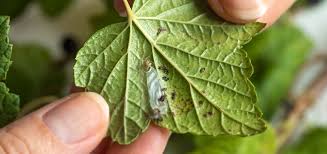
Organic farming plant diseases present a unique set of challenges and opportunities that require innovative management strategies aligned with organic principles. In organic farming, addressing plant diseases involves using natural and sustainable approaches that avoid synthetic chemicals and focus on maintaining a balanced ecosystem. The key to managing organic farming plant diseases lies in understanding their causes, implementing preventive measures, and utilizing organic treatments that protect crop health while supporting overall soil and environmental health.

A fundamental approach to managing organic farming plant diseases is the prevention of disease outbreaks through proper farm management practices. One of the most effective preventive measures is the use of disease-resistant plant varieties. By selecting crops that are naturally resistant to common diseases, farmers can reduce the likelihood of disease development and minimize the need for intervention. Additionally, practicing crop rotation is crucial in organic farming to disrupt the lifecycle of pathogens and prevent their buildup in the soil. Rotating crops helps in reducing soil-borne diseases and pests, as different crops can weaken or interrupt the life cycles of specific pathogens.
Soil health plays a critical role in the management of organic farming plant diseases. Healthy soil supports strong plant growth and enhances plant resistance to diseases. Organic farmers focus on improving soil fertility through the addition of organic matter such as compost, manure, and green manures. These organic inputs not only provide essential nutrients but also promote beneficial microbial activity in the soil. A diverse and active soil microbiome can help suppress harmful pathogens and enhance plant health. Practices such as mulching and maintaining proper soil structure also contribute to disease management by improving soil moisture and reducing soil erosion, which can otherwise exacerbate disease problems.
In addition to prevention, organic farming employs various organic treatments to manage plant diseases. Biological control methods involve using natural predators, parasites, or pathogens to target and control disease-causing organisms. For example, beneficial insects such as ladybugs or predatory mites can help manage pests that carry plant diseases. Similarly, the use of beneficial microorganisms, like Trichoderma or Bacillus subtilis, can suppress soil-borne pathogens and promote plant health. Organic farmers also utilize natural fungicides and bactericides derived from plant extracts or minerals, such as neem oil, garlic, or copper-based compounds, to manage disease symptoms and protect crops.
Integrated pest management (IPM) is a comprehensive approach that combines multiple strategies to manage plant diseases in organic farming. IPM involves monitoring crops for signs of disease, using cultural practices to reduce disease risk, and applying appropriate organic treatments when necessary. For instance, farmers may use physical barriers, such as row covers, to protect plants from disease-carrying insects or employ sanitation measures to remove infected plant debris and reduce pathogen sources. By integrating these practices, organic farmers can create a holistic approach to disease management that minimizes reliance on any single method and promotes overall farm health.
Education and awareness are essential components of managing organic farming plant diseases. Farmers must stay informed about the latest developments in organic disease management, including new resistant varieties, emerging organic treatments, and best practices. Participating in workshops, consulting with experts, and engaging with agricultural extension services can provide valuable knowledge and support. Additionally, sharing experiences and learning from other organic farmers can offer practical insights and strategies for addressing plant diseases in specific conditions.
Adopting innovative technologies and practices can further enhance the management of organic farming plant diseases. Advances in precision agriculture, such as remote sensing and data analytics, allow farmers to monitor crop health more effectively and identify disease outbreaks early. These technologies can help in making informed decisions about disease management and applying targeted interventions. Additionally, research into new organic disease management methods and tools continues to evolve, providing farmers with additional resources and options for maintaining crop health.
In summary, managing organic farming plant diseases involves a combination of preventive measures, organic treatments, and integrated approaches that align with the principles of organic agriculture. By focusing on soil health, using disease-resistant varieties, and employing biological control methods, organic farmers can effectively manage plant diseases while supporting sustainable farming practices. Integrated pest management and ongoing education further contribute to successful disease management in organic farming. As the field of organic agriculture continues to grow, ongoing research and innovation will play a key role in enhancing disease management strategies and ensuring the health and productivity of organic crops.









